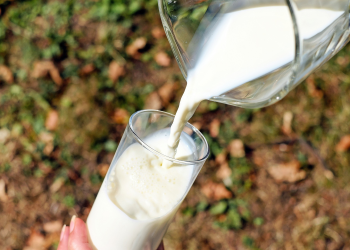Lose fat gain muscle diet
Losing fat and gaining muscle requires a combination of a balanced diet, regular exercise, and consistency. Here are some dietary guidelines to help you achieve this goal:
1. **Caloric Balance**:
-Achieving fat loss requires a calorie deficit, indicating that you should consume fewer calories than you expend.
– To gain muscle, you need to provide your body with enough calories to support muscle growth, which means consuming slightly more calories than you burn.
2. **Macronutrient Balance**:
– **Protein**: Essential for muscle repair and growth. Aim for about 1.6 to 2.2 grams of protein per kilogram of body weight.
– **Carbohydrates**: Provide energy for workouts and daily activities. Choose complex carbs like whole grains, fruits, and vegetables.
– **Fats**: Essential for hormone production and overall health.Prioritize nourishing sources such as avocados, nuts, seeds, and olive oil.
3. **Meal Timing**:
– **Pre-Workout**: A balanced meal 2-3 hours before exercise with a good mix of protein, complex carbs, and healthy fats.
– **Post-Workout**: A meal or snack with protein and carbs to aid in muscle recovery. This can be immediately after exercise or within a couple of hours.
4. **Hydration**:
-Maintaining proper hydration is essential for overall well-being and optimal performance. Water supports digestion, metabolism, and helps transport nutrients to cells.
5. **Nutrient-Dense Foods**:
– Focus on whole, minimally processed foods like lean meats, fish, poultry, fruits, vegetables, whole grains, legumes, nuts, and seeds.
6. **Limit Added Sugars and Processed Foods**:
– Sugary drinks and heavily processed foods can contribute to excess calorie intake and provide little nutritional value.
7. **Portion Control**:
– Be mindful of portion sizes. Even healthy foods can lead to overconsumption if portions are too large.
8. **Consistency and Patience**:
– Both losing fat and gaining muscle take time. Consistency with your diet and exercise routine is key.
9. **Supplements**:
– While it’s best to get nutrients from whole foods, some people may benefit from supplements like protein powder, omega-3 fatty acids, or multivitamins.Seek advice from a healthcare professional before initiating any supplement regimen.
10. **Listen to Your Body**:
-Stay attentive to the cues of hunger and fullness that your body provides. Consume food when you’re hungry and cease when you feel comfortably satisfied.
11. **Consult a Professional**:
– If you possess particular dietary requirements or health considerations, it’s advisable to seek guidance from a registered dietitian or nutritionist.
Lose fat gain muscle diet
Remember, it’s important to combine a proper diet with regular strength training and cardiovascular exercise for the best results.Remember to tune into your body’s signals and practice patience with yourself. This is a journey, and progress may not follow a straight, predictable path.

